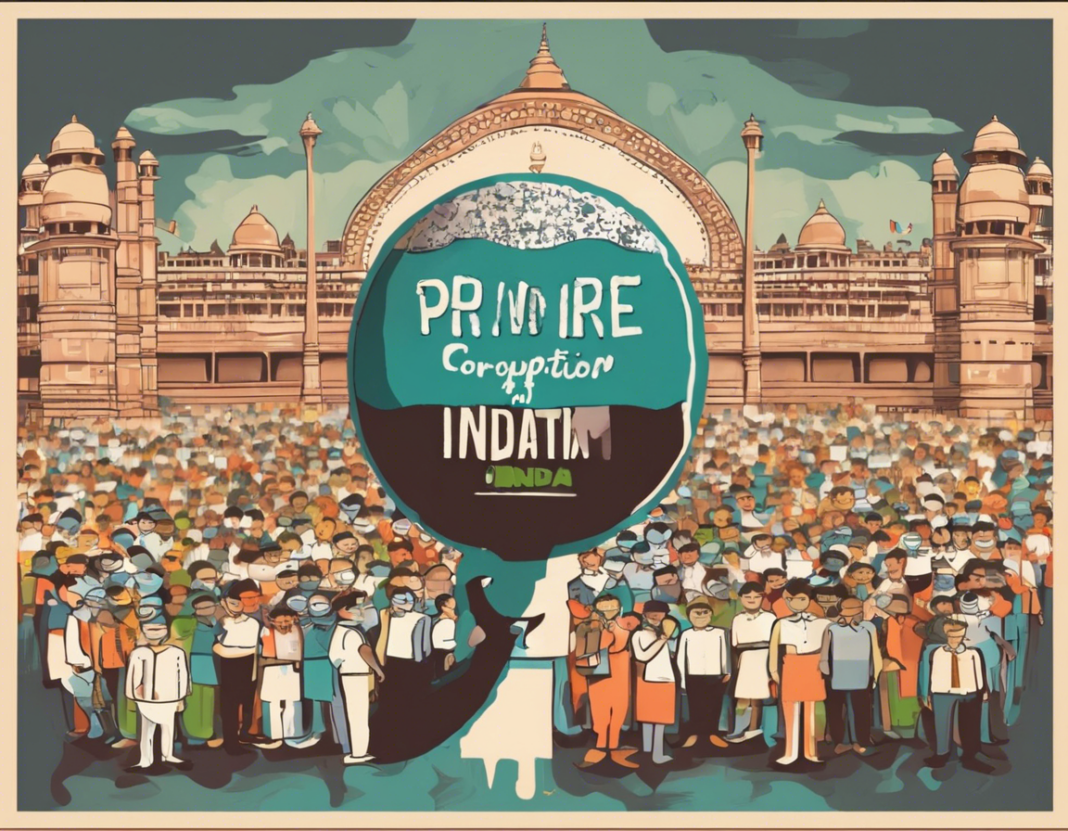Corruption has been a major impediment to the growth and development of many nations around the world, including India. It undermines democratic institutions, hampers economic progress, and erodes public trust in the government. As one of the most significant challenges facing India, it is crucial to address corruption effectively to pave the way for sustainable development and prosperity.
Understanding Corruption in India
India has long battled with pervasive corruption at all levels of society. From bribery and embezzlement to nepotism and cronyism, corrupt practices have seeped into various sectors, including politics, bureaucracy, judiciary, and business. The collusion between powerful politicians, business leaders, and bureaucrats has perpetuated a system where the rule of law is often compromised in favor of personal gains and vested interests.
Impacts of Corruption
The detrimental effects of corruption are far-reaching and multifaceted. It distorts public policies and resource allocation, leading to inefficiency and inequity. Corruption also undermines the quality of public services such as healthcare, education, and infrastructure, disproportionately affecting the most vulnerable segments of society. Moreover, it deters domestic and foreign investment, stifling economic growth and innovation.
Challenges in Combating Corruption
Despite the enactment of anti-corruption laws and the establishment of anti-corruption bodies such as the Central Vigilance Commission and the Central Bureau of Investigation, combating corruption in India remains a daunting task. Structural factors such as bureaucratic red tape, lack of transparency, and weak enforcement mechanisms create an enabling environment for corrupt practices to thrive. Moreover, the nexus between political and corporate interests complicates efforts to root out corruption effectively.
Strategies for Fighting Corruption
To build a corruption-free India, a multifaceted approach encompassing legal, institutional, and societal reforms is imperative. Strengthening transparency and accountability mechanisms, promoting ethical leadership, and empowering civil society are critical components of this comprehensive strategy. The following are some key strategies that can be adopted to combat corruption effectively:
-
Legal Reforms: Enact and enforce robust anti-corruption laws that hold public officials and private individuals accountable for corrupt activities. Implement measures such as strict penalties, asset disclosure requirements, and whistleblower protection mechanisms to deter corruption.
-
Institutional Strengthening: Enhance the capacity and independence of anti-corruption agencies to investigate and prosecute cases of corruption without fear or favor. Promote digitalization and e-governance initiatives to reduce opportunities for corruption and promote transparency in public administration.
-
Ethics and Integrity Training: Provide training programs on ethics, integrity, and anti-corruption practices for public officials, business leaders, and civil society organizations. Foster a culture of integrity and ethical behavior at all levels of society to combat the normalization of corrupt practices.
-
Citizen Participation: Empower citizens to hold public officials accountable through mechanisms such as social audits, grievance redressal forums, and participatory budgeting. Promote a culture of vigilance and civic engagement to monitor government activities and prevent misuse of public resources.
-
International Cooperation: Collaborate with international organizations, foreign governments, and civil society groups to share best practices, expertise, and resources in combating corruption. Join initiatives such as the United Nations Convention against Corruption to strengthen global anti-corruption efforts.
Frequently Asked Questions (FAQs)
- What is the root cause of corruption in India?
-
The root causes of corruption in India include weak governance structures, lack of transparency, political interference, and a culture of impunity.
-
How does corruption impact the economy of India?
-
Corruption hampers economic growth by distorting market mechanisms, deterring investment, increasing transaction costs, and undermining investor confidence.
-
What role can the judiciary play in combating corruption?
-
The judiciary plays a crucial role in upholding the rule of law, interpreting anti-corruption legislation, and holding perpetrators of corruption accountable.
-
Why is political will important in fighting corruption?
-
Political will is essential to drive anti-corruption reforms, enact stringent laws, and ensure enforcement mechanisms are robust and effective.
-
How can technology be leveraged to combat corruption in India?
- Technology can enhance transparency and accountability through e-governance platforms, online grievance redressal systems, and digital payment mechanisms that reduce opportunities for corrupt practices.
In conclusion, building a corruption-free India is a collective endeavor that requires the commitment and cooperation of all stakeholders, including the government, private sector, civil society, and citizens. By implementing comprehensive anti-corruption measures, promoting ethical leadership, and fostering a culture of integrity, India can pave the way for sustainable development, inclusive growth, and a more prosperous future for its citizens.

